The genebanks of the Consultative Group on International Agricultural Research (CGIAR) are often portrayed in the popular press as villains, the archetypical biopirates who steal huge amounts of biodiversity from their rightful owners and ride roughshod over the rights of poor farmers.
At the same time the genebanks are often portrayed as heroes, the saviors of biodiversity that would otherwise have been lost. Can we reconcile the two views? The truth resides in a newly implemented treaty.
Without the tiniest shadow of a doubt, CGIAR genebanks have prevented the wholesale destruction of the huge wealth of crop biodiversity created by farmers over millennia since the dawn of agriculture. Make no mistake — the crop diversity we collected from the 1960s to the 1980s was considered at that time by many farmers and extension officers to be inferior. They wanted the new miracle varieties that gave farmers the higher yields they needed to live without hunger. They stopped using their old low-yielding varieties. Without the foresight of our predecessors, much of this age-old biodiversity would now be extinct.
By conserving the old varieties, the CGIAR genebanks have done more than anyone else to ensure the sustainability of modern agriculture. New challenges confront us all the time: emerging strains of pests and diseases, modern concepts of breeding for nutrition and eating quality, and innovative technologies to make farming more efficient and environmentally benign. The genes required to meet these new challenges are largely found in the old varieties. If we had lost them, sustainable progress in agriculture would have become impossible.
Maintaining the sustainability of modern agriculture— and thereby alleviating poverty and banishing the specter of mass famine — requires us to exploit the old varieties. But this raises daunting questions. How can we exploit them fairly, with due respect for the rights of the farmers and others in the countries from which they came? Indeed, what are the rights of those farmers and countries?
These are hugely difficult and sensitive questions, beyond the authority of the CGIAR itself to answer. They are national and transnational political issues. The 1993 Convention on Biological Diversity declared that nations have sovereign rights but did not define the rights of farmers or a mechanism for fair exploitation of biodiversity. Each country needs to work out its own answers, through whatever consultation process its government uses.
Then there must be a process of intergovernmental discussion and negotiation to develop internationally agreed standards. The relevant intergovernmental body is the Commission on Genetic Resources for Food and Agriculture, which was formed in 1983 specifically to address these issues.
Its 164 member countries together dictate how CGIAR genebanks manage, share and exploit their vast collections. Through these countries, a momentous new treaty — the International Treaty on Plant Genetic Resources for Food and Agriculture — came into force on 29 June 2004
This treaty establishes, for the first time ever, an internationally agreed framework that recognizes the rights of the farmers and countries that developed the old varieties on which modern sustainable agriculture is based, and it implements an agreed mechanism for sharing the benefits arising from the exploitation of biodiversity.
As we have done regarding previous decisions of the commission, the CGIAR genebanks will adopt the policies and mechanisms of the new treaty. That is the only way we can be sure of following internationally agreed and acceptable standards.
If you disagree with these standards — if you think they cloak biopiracy in a mantle of respectability — what should you do? Well, don’t complain about the CGIAR genebanks. There is nothing we can do about the standards because we do not decide national policies or international agreements.
We merely implement them. Instead, lobby your relevant governmental department. Get it to consider alternatives. If it is not a member of the commission, get it to join. If it is not a party to the new international treaty, get it to join the governing body. That way, you and your government can contribute to new decisions that will affect and improve how we honor farmers’ and countries’ rights to share in the benefits of sustainable improvement in agriculture.
_________________________________________
N.R. Sackville Hamilton is the head of the Genetic Resources Center at IRRI.

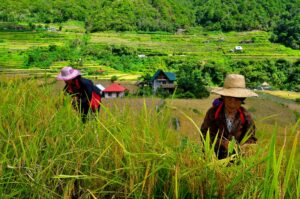

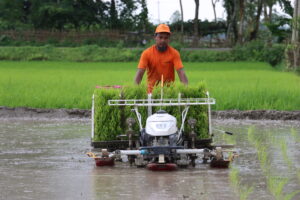
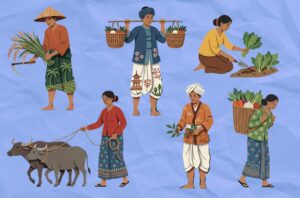
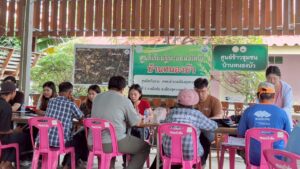
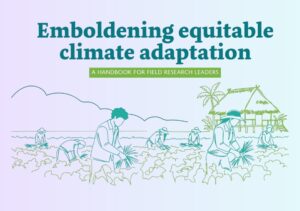




Luc, I did the opposite! Probably bacuese of the theme climate change and the pessimistic first half of the movie, I at first subconsciously had characterised it as a green movement’ movie. To discover that it is not.Hence the observation => division in these old controversies is no longer getting us anywhere.